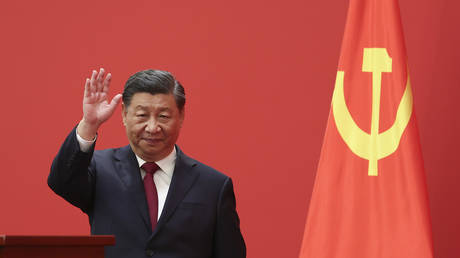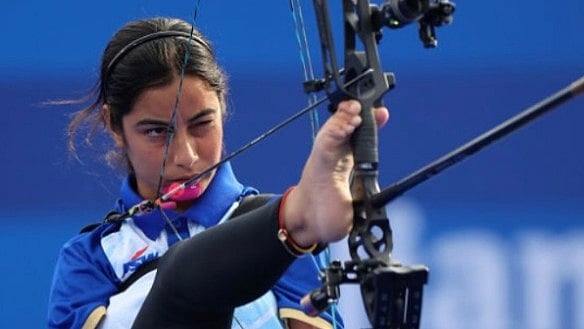Xi ‘personally intervened’ in Saudi-Iran talks – diplomat
President Xi Jinping played a crucial role in restoring diplomatic ties between Saudi Arabia and Iran, a top Chinese diplomat has said Read Full Article at RT.com

Last month’s Beijing-brokered deal ended a seven-year rift between Tehran and Riyadh
President Xi Jinping played a key role in helping to persuade the leaders of regional rivals Saudi Arabia and Iran to restore ties and end their seven-year diplomatic rift, a senior Chinese diplomat told newspaper People’s Daily on Saturday.
Xi “personally persuaded the leaders of the two countries and supported Saudi and Iran to develop a friendly relationship as neighbors,” the director of the Chinese foreign ministry’s Department of West Asian and North African Affairs, Wang Di, told the government-linked newspaper.
Wang added that Beijing’s efforts to promote regional stability in the Middle East come amid “some large countries outside the region causing long-term instability” for what he described as their own “self-interest.” He also indicated that Beijing will be a “fair mediator” and that it will continue to be a “promoter of peace and stability in the Middle East.”
The talks between Tehran and Riyadh were notable for the non-involvement of the United States. For around 75 years, Washington was a key diplomatic player in the region.
Last month’s Beijing-brokered accord between Saudi Arabia and Iran was heralded as an important foreign-policy win for China. It also led to the kingdom launching peace talks designed to end the eight-year conflict in Yemen. It also signaled that Beijing’s “diplomatic credibility” in the region is gaining foothold with its economic influence, said Oliver John of Washington-based think tank Middle East Influence, according to Saturday’s South China Morning Post.
On Friday both Saudi Arabia and Iran announced they’ll reopen embassies in each other’s capitals “within days” for the first time in seven years. In 2015 relations between Tehran and Riyadh became increasingly strained following the intervention of Saudi Arabia and the UAE in the Yemen War. Previously, the Iran-backed Houthi rebels had seized control of the Yemeni capital Sanaa from the Saudi-aligned government.
These tensions subsequently sparked several conflicts in the region and were among the contributing factors for the Syrian civil war – a conflict, Wang added, to which Beijing is keen to seek a diplomatic remedy.
Saudi Arabia cut diplomatic ties with Syria in February 2012, joining the US in backing the militants that sought to overthrow President Bashar Assad. With the backing of Russia and Iran, the government in Damascus eventually prevailed over the collection of rebel militias that included terrorists affiliated with Al-Qaeda and Islamic State (IS, formerly ISIS).
Beijing has also proposed a two-state solution to Israel and Palestine, Wang said, and Chinese Foreign Minister Qin Gang said this month that it could play an “active role” there in mediating peace talks.
The country’s efforts to promote stability in the Middle East also serve a dual purpose of anchoring existing energy deals, Oliver John added in SCMP’s report. Saudi Arabia is a key supplier of energy to Beijing, with China accounting for about one-quarter of its oil exports in 2021.






















